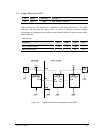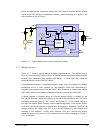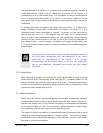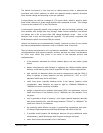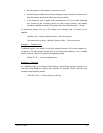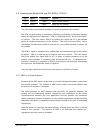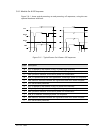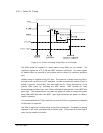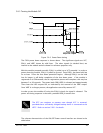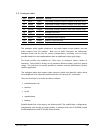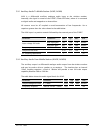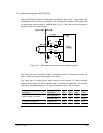
LZT 123 1836 43
5.8 Powering the Module ON and OFF (PON_L, PON_H)
Pin Name Direction Function
21 PON_H Input Device On/Off control
33 PON_L Input Device On/Off control
The GS64 offers two hardware methods to power up and down the module.
The PON_L signal utilizes a momentary switching mechanism to alternate between
power-on and power-off sequences. PON_L is held high to VCC by an internal pull-
up resistor. The user asserts PON_L by pulling this signal low for a pre-defined
period to initiate powering-on of the module. The user re-asserts PON_L with a
subsequent low transition, which is held low for a pre-defined period, to power-off
the module.
The PON_H signal is designed to be pulled high and maintained high for the power
on period. PON_H is held low by an internal pull-down resistor. The user asserts
PON_H by pulling this signal high to VCC in order to initiate powering-on of the
module, then maintains it constantly high during normal use. A subsequent de-
assertion, marked by a transition of PON_H from high to low, and then maintaining
the signal low, will initiate the power-off process.
Only one input should be exercised for each Power-on to Power-off event.
5.8.1 VREF as a Power Indicator
Presence of the VREF signal can be used as a useful indicator that power-on has been
successfully initiated. The absence of VREF can be used a successful indicator that
the power-off sequence is complete.
The initial presence of VREF indicates that the LDOs are powered, however the
module will be establishing network connectivity and registration at this point.
Communications between the host application and the module can commence
shortly thereafter, however completion of the network registration will be sometime
afterwards (the period is dependent upon network loading at the time of attempted
registration).
Once the power-off sequence has been initiates, shutting-down the LDOs is the last
action in the process. The absence of VREF is an indication that network de-
registration and shut-down is complete.




